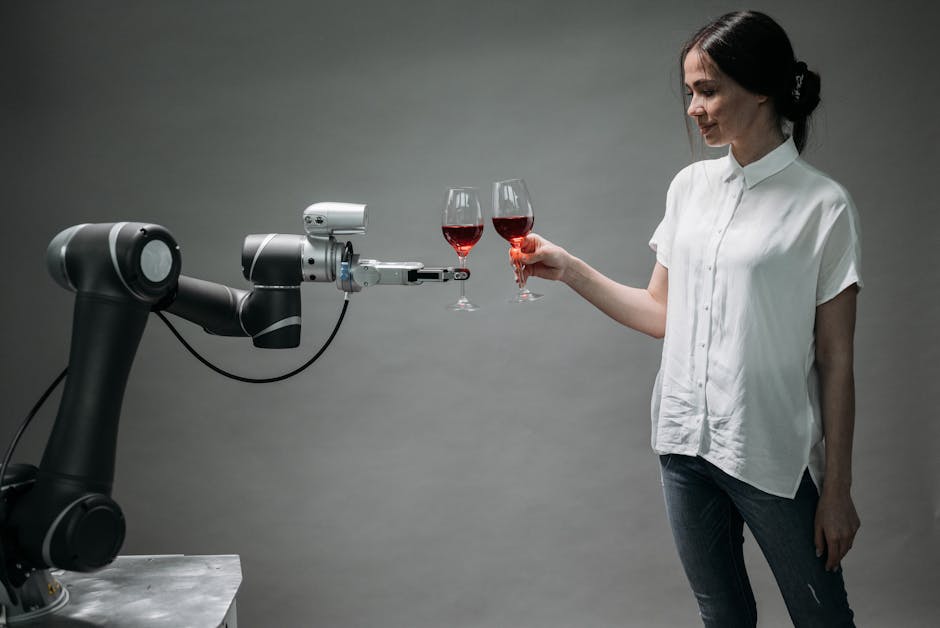No products in the cart.
Navigating the AI Job Market: What the Future Holds
Anthropic's CEO warns of a significant shake-up in the job market due to AI advancements. Discover how to navigate this evolving landscape.
In a world where technology evolves at breakneck speed, the specter of change looms large—especially for the job market. Recently, Anthropic’s CEO, Dario Amodei, raised eyebrows with a sobering statistic: there’s a 25% chance that corporate roles could be disrupted by artificial intelligence in the coming years. For many young professionals, this revelation feels like a double-edged sword: a harbinger of innovation and a potential threat to job security.
As we stand at this crossroads, it’s imperative to understand what this disruption could mean and how to proactively navigate the shifting landscape. The implications are vast, touching every sector from healthcare to finance, and influencing how we view our professional futures.

Historically, technological advancements have always reshaped the job market. Think of the Industrial Revolution, which automated manual labor but also created new jobs in manufacturing and machinery. Fast forward to today, and we find ourselves in a similar situation, albeit with a digital twist. AI tools are not just assisting workers; they are beginning to take over tasks previously deemed essential for human employees.
Consider the healthcare sector, where AI is being integrated into diagnostic processes and patient care. While this can lead to improved outcomes, it also raises questions about the future of healthcare careers. Will doctors, nurses, and technicians find their roles diminished as algorithms and automated systems take on more responsibilities? Or will they simply evolve, embracing AI as a powerful ally in their work?
Young professionals entering the job market now must cultivate a mindset of continuous learning.
In many ways, the answer lies in adaptability. Young professionals entering the job market now must cultivate a mindset of continuous learning. The skills that are highly valued today may become obsolete tomorrow. For instance, data analysis and digital literacy are becoming indispensable, but as AI becomes more prevalent, even these skills will need to be augmented with a deeper understanding of AI tools and their applications.
As Amodei pointed out, the potential for disruption is significant, and industries that fail to adapt risk being left behind. Companies will need to invest in their workforce, providing opportunities for upskilling and reskilling. This is not just a matter of corporate responsibility; it’s a survival strategy. Firms that prioritize employee development will not only thrive but also foster a culture of loyalty and innovation.
Moreover, the conversation around diversity, equity, and inclusion (DEI) is more crucial than ever. As AI systems are designed and implemented, there is a pressing need to ensure that these technologies do not perpetuate existing biases. Young professionals should advocate for inclusive practices that consider diverse perspectives in the development of AI technologies. This is where the next generation of leaders can make a significant impact.
Looking ahead, it’s clear that the job market of tomorrow will be defined by those who can harness the power of AI while maintaining a human touch. Skills such as empathy, creativity, and critical thinking will become increasingly valuable as workers learn to collaborate with machines rather than compete against them.
In essence, the future of work is not about choosing between man and machine; it’s about finding harmony between the two. As we embrace this new frontier, young professionals must prepare not just for the jobs of today, but for the careers of tomorrow, equipped with a toolkit that balances technical proficiency with human-centric skills.
Companies will need to invest in their workforce, providing opportunities for upskilling and reskilling.
In conclusion, the message is clear: adapt or be left behind. The AI revolution is not a distant threat; it’s already here. Those who take proactive steps to upskill, embrace change, and advocate for inclusive practices will not only survive but thrive in this new era of work.











